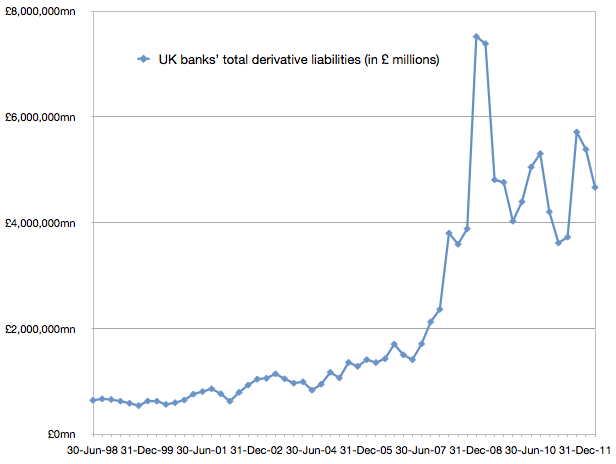On Saturday, I spoke again to set out the scale and scope of our financial and monetary mess and again, the audience welcomed the presentation. I find this encouraging: while people are typically horrified by the true levels of debt and debasement that have been entered into by states on our behalf, generally, people are prepared to believe that reform is possible.
I was put very much in mind of two attitudes.
As Sean Corrigan has indicated, Bagehot’s classic treatise is not so much a defence of British monetary orthodoxy as a despairing attempt to show how to survive the banking crises which are inevitable under such a system. As Bagehot wrote:
I can only reply that I propose to retain this system because I am quite sure that it is of no manner of use proposing to alter it. […]
…
We must therefore, I think, have recourse to feeble and humble palliatives such as I have suggested. […]
This stands in contrast to the hopeful attitude shown by Jörg Guido Hülsmann in The Ethics of Money Production:
Many will object that it is impossible to bring about such a return [to a universal respect for property rights], now that we have progressed so far on the way toward a global paper money. This is a thoroughly defeatist point of view because it takes the coming disaster (hyperinflation or global tyranny) for granted. Most importantly, however, it is morally wrong. As we have argued, we face a problem of the human will; but this is after all only a problem of the will.
Now, I suppose a thoughtful person might question whether Hülsmann is engaging in hyperbole with his reference to “the coming disaster”. It seems a very reasonable question and, though I don’t propose to begin answering it here, I reflect on the trouble faced, not just by the UK, but by the Eurozone and the USA and also on the actions of their Central Banks, treasuries and legislatures: a broader range of predictions than we are accustomed to has become credible.
Denying the facts of our predicament will not do, but nor will a hopeless despair. The central, optimistic path is serious bank reform working towards honest money. As I reflect on responses to my speeches, from students, Conservatives, businessmen and others, and as I consider the increasing success of grassroots campaigns like Positive Money, I am increasingly persuaded both that Hülsmann is right to reject defeatism and that there are good reasons to believe that the will to deliver worthwhile reform may yet emerge.
You can find Andy Duncan’s review of Hülsmann here.
Antoine Clarke’s fascinating paper The Micropolitics of Free Market Money: a Proposal is also relevant.




Good stuff Steven
more and more are realising that we need to return to honest money.
And the market, which is bigger than all of the central banks, is deciding that Gold and Silver are likely to play a role. Greshams law in action.